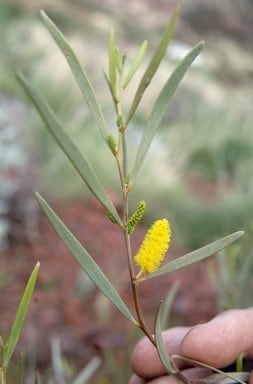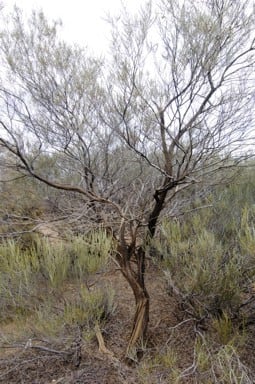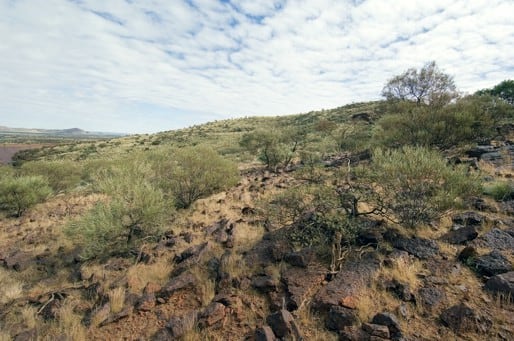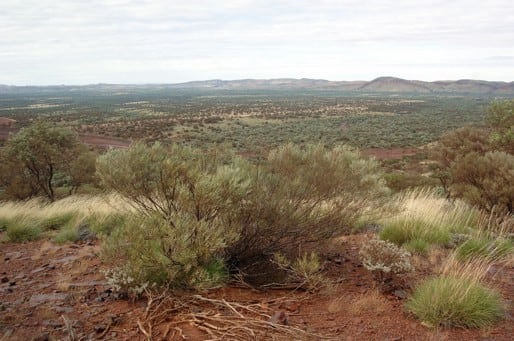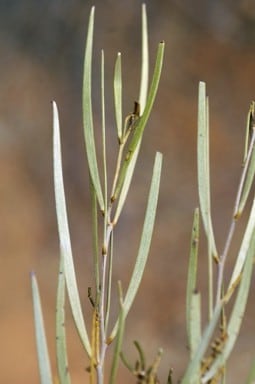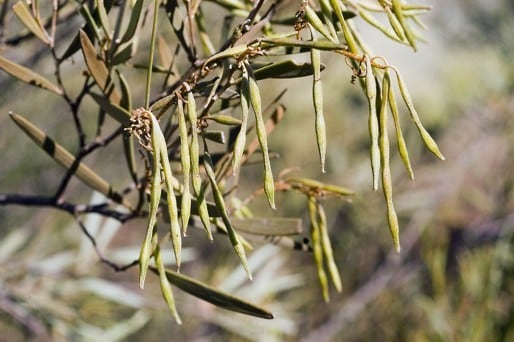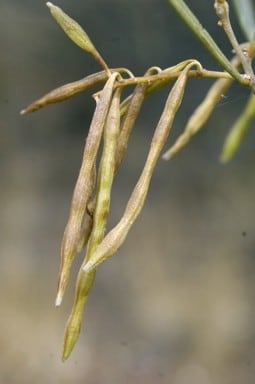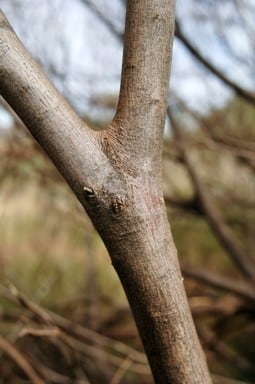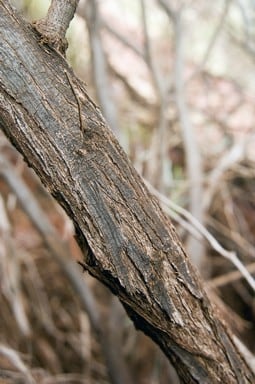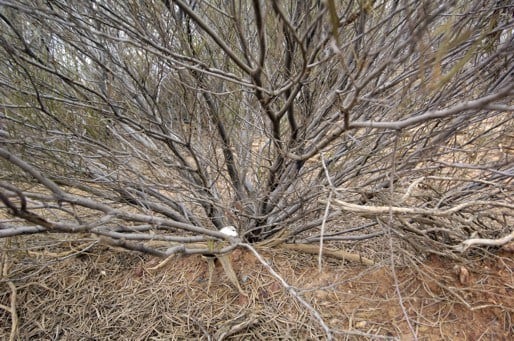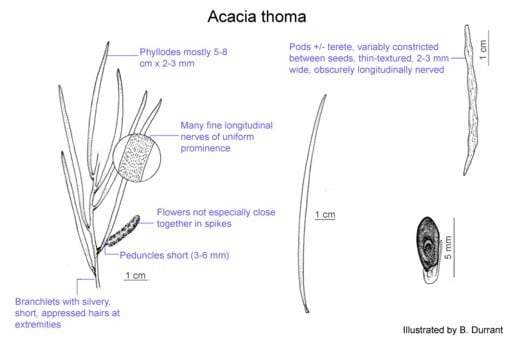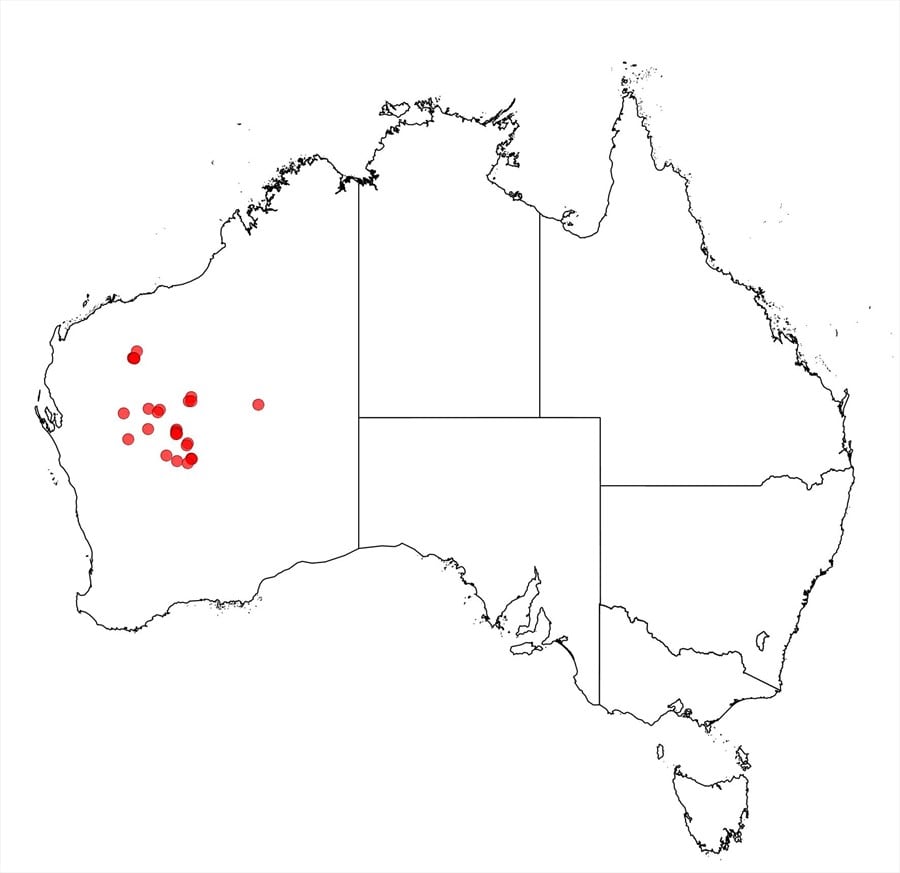Acacia thoma Maslin
WATTLE
Acacias of Australia
Common Name
Thoma’s Wattle
Family
Fabaceae
Distribution
Of scattered occurrence from near Paraburdoo in the Pilbara, S to Meekatharra and Leinster, and E to Mt Nossiter in the Little Sandy Desert, W.A.
Description
Multistemmed shrub (1.5–) 2–3.5 m high. Bark grey, smooth becoming fissured near base. Branchlets silvery sericeous between obscure ribs at extremities, glabrescent. Phyllodes narrowly linear to very narrowly elliptic, straight to shallowly incurved, 5–8 (–10) cm long, 2–3 (–4) mm wide, coriaceous to subrigid, dull green to silvery greyish green, with minute, silvery, appressed hairs which are confined to between the nerves with age (hairs often obscured by resin); finely multistriate with nerves of uniform prominence. Inflorescences (few seen) simple; peduncles 3–6 mm long, with silvery white appressed hairs; spikes 10–25 mm long, light golden, subdensely flowered. Flowers 5-merous; calyx gamosepalous, irregularly dissected for ½–¾ its length, minute (1/5–¼ length of petals); petals 1.3–1.4 mm long. Pods submoniliform, 2–6 cm long, 2–3 mm wide, thinly coriaceous-crustaceous, sericeous between the obscure, longitudinal nerves. Seeds longitudinal, narrowly elliptic to narrowly oblong-elliptic, 4–5 mm long, shiny, dark brown; aril white.
Phenology
Flowers (few seen) May–June.
Habitat
Grows in rocky habitats in open Acacia or mulga shrublands.
Specimens
W.A.: Great Northern Highway, 12.3 km N of Meekatharra, R.Fairman 257 (PERTH); Little Sandy Desert, Mt Nossiter, B.R.Maslin 5645 (NSW, PERTH); 10 km NE of Leinster, P.Parkinson LCS 12856 (AD, CANB, DNA, K, MEL, MO, NSW); Mt Channar, E.Thoma 857 (PERTH).
Notes
Related to the more southerly distributed A. effusifolia (syn. A. coolgardiensis subsp. effusa); R.S.Cowan & B.R.Maslin, Nuytsia 10: 22 (1995) treated the Pilbara occurrence of A. thoma as a northern outlier of subsp. effusa. Acacia effusifolia differs most obviously in having stems fluted (flutings absent in A. thoma), peduncles with red-brown glandular hairlets additional to silvery white appressed hairs, flowers larger and more densely arranged, sepals longer and normally free, and pods not or scarcely constricted between the differently shaped seeds. Acacia thoma is also similar to A. cockertoniana (see that species for differences) and A. sibirica which is most readily distinguished by its broader, narrowly oblong, flat pods, glabrous branchlets, phyllodes and peduncles, and longer, less divided calyx.
FOA Reference
Flora of Australia Project
Author
J.Reid, B.R.Maslin
This identification key and fact sheets are available as a mobile application:
URL: https://apps.lucidcentral.org/wattle/
© Copyright 2018. All rights reserved.
